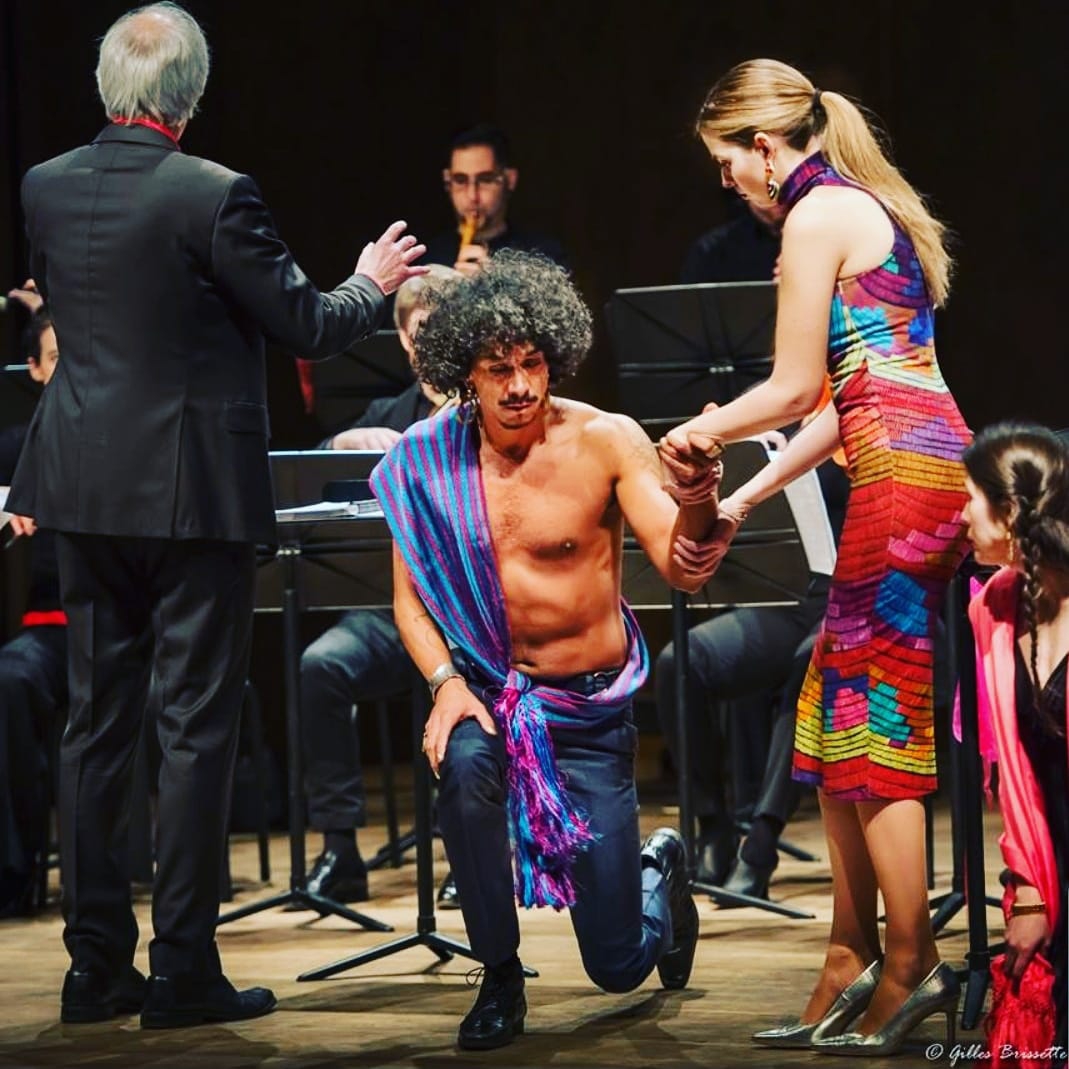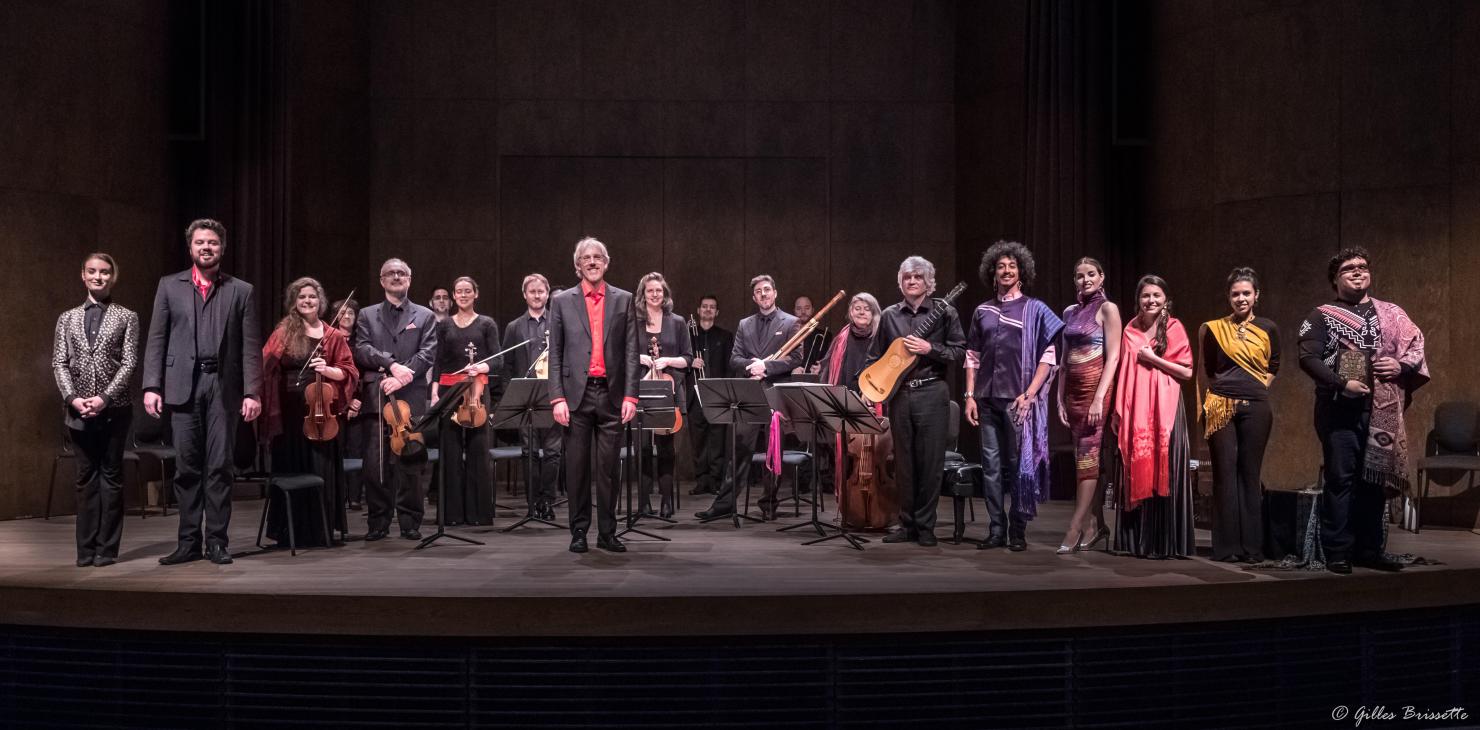
Timely & fascinating: Minnesota Bach Society presents Motezuma
ReviewMinnesota Bach Society, in conjunction with Seattle Early Music and Ensemble Caprice, have created a production of Antonio Vivaldi’s “lost opera”, Motezuma in the Buetow Auditorium at Concordia University. It is a timely repertoire choice, not only because of the plot’s exploration of the Spaniards’ conquering of the Aztec people, but because last year was the 500th anniversary of the conflict. Before the opera began, the Mexican consulate spoke, giving historical context to the evening.
This was a semi-staged production, with a healthy-sized orchestra of period instruments. The opera began with a three-movement symphonic prologue. Suddenly, a voice was heard from the back of the auditorium speaking in colloquial English. This was the added character: Motezuma, the observer. He narrated in a series of home-cooked monologues.

This is a trendy move (I have seen four operas with this in it in the past year), but in this case, not one that really fit the setting. Patrons of a Bach and Early Music Society need not be lectured on how Baroque operas have male characters that are sung by female sopranos. Or to have the fourth wall broken at all, really. It was unfortunately distracting, and begs the question of whether there was recitative or spoken dialogue that was cut in favor of this. What would have been more stylistic would be having the monologues delivered in Spanish, or having the singer Motezuma narrate his actions.
The stand out singer was Nicholas Chalmers, his tenor voice was energetic with vibrant coloratura. Mr. Chalmers played one of the two Spaniards, Fernando. In this semi-staged production, much of the tension was confined to the steely looks the Aztecs and Spaniards would cast at each other over the orchestra. The plot is somewhat reminiscent of Mozart’s Idomeneo (the child of the conquered falling in love with one of the conquerors and all that). Motezuma’s daughter Teutile sang a despairing aria “Barabaro più non sento” similar to Ilia’s “Padre, germani addio”. And, if I hadn’t yet drawn a strong enough parallel between the two works, Motezuma has a happily-ever-after ending as well.

Overall, an interesting night of opera with a subject I don’t think or know much about. It is always fascinating how history can leap out of the staves of music, and cause the audience to ponder events from long ago. This production will be in Miami later this month, and in Washington D.C. presenting at the Library of Congress. It is encouraging to see an early opera being given the touring treatment.


Comments